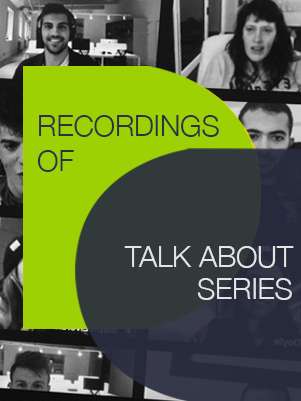International Student Newsletter
Dear international students,
In Announcements, learn about the Community Service Center’s Spring Days of Service, and consider this opportunity to engage with a local community partner while learning about Boston and its social justice issues. Also, consider applying to be an International Peer Mentor (IPM) for the summer/fall 2024 IPM Program, and make a positive impact in the life of a first-year undergraduate international student. With finals right around the corner, attend an Educational Resource Center workshop and learn tools to help you with study and test-taking methods. Also, consider attending Building a Stronger You and Sharpen Your Focus workshops, and joining Happy Terrier Walk to improve your wellbeing during finals. The End of Semester Study Break event on April 23 provides an opportunity to treat yourself to a JP Licks ice cream sundae and chill out with music, therapy dogs, and coloring!
Lastly, if you have questions about Optional Practical Training, including eligibility factors, and application timelines, consider one of the virtual workshops the International Student and Scholar Office offers in April and May.
In the Student Experiences section, BU junior Ria Sonalker (CAS’25), reflects on her internship at BU Sustainability and shares advice with international students. In Culture Corner, CAS junior and former International Student Programming Assistant Doga Sevgi shares her tips for crafting professional emails.
This is the last newsletter for this academic year. We wish everyone good luck with any final projects and exams, and warmest congratulations to all of our graduating Terriers!
Announcements

Spring Days of Service
This year, Spring Days of Service opportunities will take place during the weekends of April 20 & 21, and April 27. This program, offered by the BU Community Service Center (CSC) aims to foster sustainable and lasting connections between volunteers and local community partners to encourage further involvement with the CSC and the greater Boston community.
More Info & Register
Apply to be an International Peer Mentor
Global Programs is accepting applications for International Peer Mentors (IPMs) for the summer/fall 2024 program. IPMs support the transition of first-year undergraduate international students to BU, promote opportunities for international student engagement, and share knowledge and campus resources. To learn more about the program, and the IPM responsibilities and qualifications, visit the IPM Program website. The application deadline is Monday, May 22.
Apply Now
Finals and Wellbeing Programs
As finals are just around the corner, consider attending one of the Study Smarter, Not Harder or Get Ready for Finals workshops and learn tools and strategies to help you with test-taking methods. Then join the End of Semester Study Break event on April 23 and treat yourself to a JP Licks ice cream sundae and chill out with music, therapy dogs, and coloring. Also, consider attending the Building a Stronger You or Sharpen Your Focus workshops, the Wellbeing Experience, or joining the Happy Terrier Walk group walking program as a way to manage stress during finals and meet new friends.

Post-completion OPT and STEM OPT Workshops
Do you have questions about Optional Practical Training (OPT) and STEM OPT, including eligibility factors and timing of application, considerations for travel and employment, and tips for preparing and submitting the applications? Consider attending one of ISSO’s workshops in April and May. Also, don’t miss BU’s Professional Clothing Closet Open House on April 19 as an opportunity to get a wardrobe refresh for upcoming interviews, networking events, and career fairs.
Upcoming Events
Student Experiences

A Word from Students
BU student, Ria Sonalker (CAS’25), reflects on her internship at BU Sustainability and shares advice with international students.
Culture Corner
Advice for Crafting Professional Emails
Written by Doğa Sevgi, CAS junior and former International Student Programming Assistant (article first appeared in the March 2023 newsletter)
Being part of a community of scholars means you will need to reach out to the professionals, whether in your institution or outside, through emails. You might know how to approach the professionals in person settings but crafting emails can be tricky when you are starting off. There are some things you should be aware of before pressing “send” on that email but don’t worry, we are here to help.
Keeping the Subject Line Short
Even before starting your email, you should think about a short but meaningful subject line. Your subject line will indicate the general premise of your email and prepare the audience for the rest. Rethink your past experiences and how you chose to open or not open the emails depending on their subject line. It goes the same way when you are the one writing the email. It doesn’t only help the audience understand what it will be about but also allows them to sort through their own emails depending on the subject.
Addressing the Audience
Writing an email to a college professor or a company is different from writing an email to a high school teacher. You would need to approach significantly more professionally. Starting off with “Hi” or “Hello” (especially if this is the initial email) could be risky. Instead, one of the options below would be better:
- Dear (name) Professor
- To whom it may concern – for when you don’t know who will respond
- Dear (title)
These are good options to consider if you are the one reaching out to someone in a higher position than you. Depending on how they start their email you can change the addressing to “Hi (name) Professor”.
Keep to the Main Points
When you are writing the paragraph, keep in mind that the person reading the email might be on a time crunch so instead of telling them unnecessary information, try to stick to the main points. If not needed in the context, there is no need to explain every minor detail and thought process leading up to your final point of question. Another aspect to eliminate unnecessary information is to avoid run-on sentences. Focusing on writing shorter sentences will allow you to eliminate unnecessary information, repetition, and keep the attention on what answer you are looking for / what message you want to convey.
Usage of Emojis and Abbreviations (or lack of)
You should not use emojis in your emails. Although it may seem like you are being genuine or sincere, it gives off the impression that you are not professional or can be. Even though you are fully capable of taking the responsibilities you have, it would push people to not take you seriously going forward. This goes along with writing in abbreviations. To keep sounding professional you would need to fully type out the words unless it is a location well-known like the GSU.
Usage of Active Voice
While writing your email, it would be preferable to use active voice. Active voice will emphasize the person doing the verb mentioned in the sentence and not draw attention away from what is important. Some examples include:
- I completed the given task.
- The professor announced the grades.
- The group presented the project on Tuesday.
Although passive voice could be beneficial in some cases, most of the time the subject is expected to be the emphasis of a topic, therefore, expected to be drawn attention to.
Signing Off Professionally
After writing your email you would want to sign off. There are some simple ways of signing of, from more casual to more professional, including:
- Best,
- Thank you,
- Best regards,
- Kind regards,
All of the above should be followed with a full name. At times it might be beneficial to add your class section for the professor to find related information better targeted towards you. If this is for a work email you could add your job title, the line below your name. You could also create personalized signatures through the Gmail settings section where you wouldn’t have to type the signature every email, but have it added automatically.
Although there is no one way of crafting a professional email, there are still some basic steps that can guide you. Following these steps will allow you to sound professional, save time for your audience, and overall provide better communication between the parties.
The Compass
There are over 250 academic, housing, community, and employment resources currently on the Compass and each issue we will highlight two.





